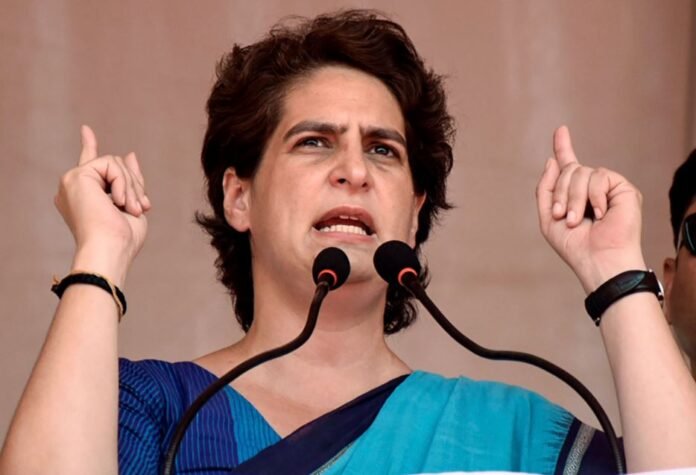The recent Chandigarh mayoral polls have sparked controversy and raised concerns about the state of democracy in India, with Priyanka Gandhi, the General Secretary of the Indian National Congress, expressing strong condemnation of the electoral process. In a scathing critique, Gandhi has lamented the alleged subversion of democratic principles and the erosion of political freedoms in the country.
The mayoral elections in Chandigarh, the capital city of Punjab and Haryana, are significant not only for their local implications but also as a barometer of the state of democracy in India. As a key battleground in the political landscape, Chandigarh’s electoral contests often reflect broader trends and dynamics shaping Indian politics.
Priyanka Gandhi’s assertion that “democracy has been crushed” in the Chandigarh mayoral polls underscores the gravity of the situation and the perceived threats to democratic governance. According to Gandhi, the electoral process was marred by blatant manipulation, coercion, and misuse of state machinery to influence the outcome in favor of the ruling party.
Central to Gandhi’s critique is the allegation of electoral malpractice and the subversion of democratic norms by the ruling party. She has accused the government of resorting to unethical and undemocratic tactics, including the use of state resources, intimidation of opposition candidates, and manipulation of the electoral machinery to tilt the odds in its favor.
The implications of such allegations extend beyond the confines of Chandigarh’s local politics, raising broader questions about the integrity of India’s democratic institutions and the health of its electoral process. In a democracy, free and fair elections are the cornerstone of legitimate governance, serving as a mechanism for the expression of popular will and the peaceful transfer of power.
However, when the electoral process is compromised by allegations of misconduct and malpractice, it undermines public trust in the democratic system and erodes the legitimacy of elected representatives. Moreover, it poses a grave threat to the fundamental principles of democracy, including the protection of civil liberties, the rule of law, and the accountability of government to the people.
The situation in Chandigarh has reignited debates about the need for electoral reforms and greater transparency in India’s political processes. Critics argue that the prevalence of money power, muscle power, and political influence undermines the democratic ideals of equality, fairness, and representation. They call for measures to strengthen institutions, enhance oversight mechanisms, and safeguard the electoral process from undue influence and manipulation.
At the heart of Gandhi’s critique is a broader concern about the state of democracy in India and the erosion of democratic values under the current political dispensation. She warns against the dangers of unchecked power and authoritarian tendencies, emphasizing the need for vigilant opposition and grassroots mobilization to defend democratic principles and safeguard the rights of citizens.
In response to Gandhi’s allegations, the ruling party has dismissed her criticisms as politically motivated and baseless. They argue that the electoral process in Chandigarh was conducted in accordance with established norms and procedures, and that the results reflect the will of the people.
However, the controversy surrounding the Chandigarh mayoral polls underscores the deep-seated divisions and polarizations within Indian society, as well as the challenges facing the country’s democratic institutions. In a diverse and pluralistic democracy like India, the protection of individual rights, the rule of law, and the integrity of electoral processes are essential for ensuring social cohesion, political stability, and sustainable development.
As the fallout from the Chandigarh mayoral polls continues to reverberate, it serves as a stark reminder of the fragility of democracy and the imperative of constant vigilance in defending democratic values and principles. The allegations of electoral malpractice and the erosion of political freedoms must be thoroughly investigated, and corrective measures must be taken to restore public trust in the democratic process. Ultimately, the strength of India’s democracy lies in the resilience of its institutions and the commitment of its citizens to uphold the principles of freedom, justice, and equality.

